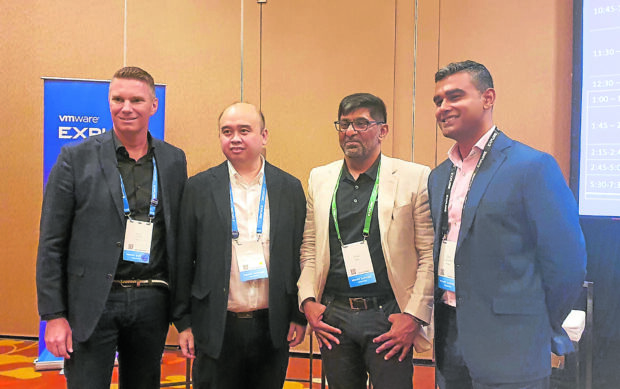SINGAPORE—Philippine companies have become more cautious with their spending on cloud technology as they scale up their business and invest more capital in digital initiatives to improve operational efficiency. While cloud was initially seen as a cost-saving measure, VMWare country manager Walter So explains to the Inquirer that companies sometimes end up with higher expenses as they increase their cloud capacity to meet growing data requirements.
So emphasizes that the value of cloud lies in its agility and ability to provide additional resources as a service. It’s not just about cost but about utilizing the cloud model to access the specific resources that meet the company’s needs. The pandemic has accelerated the adoption of cloud technology, especially for hybrid work setups, where employees can access files, applications, and documents from various devices like laptops, smartphones, and tablets.
When it comes to costs, So highlights that it varies depending on the enterprise’s needs. Many companies adopt a multi-cloud approach, using several platforms with specific requirements. For instance, applications like Google Docs and Google Sheets are best suited for Google’s cloud platform. Companies must choose what works best for them.
Despite the need for agility, companies are mindful of their monthly cash outflows and are focused on maximizing their cloud resources. VMWare, a leading cloud computing company, provides clients with insights to optimize data storage by identifying and removing idle files and applications that take up unnecessary space. Moreover, clients must discern between public and private cloud usage to manage costs effectively. Public cloud vendors like Google GCP, Microsoft Azure, Oracle, Alibaba AliCloud, and Amazon AWS offer data storage as a service and charge clients on a regular basis. Private cloud refers to a company’s own infrastructure, which can be less costly, but companies must consider expenses related to technology management and upgrades.
A study by Alibaba reveals that 91 percent of Philippine companies plan to increase their investment in cloud technology this year, recognizing its potential in handling workloads. According to the International Data Corp., global spending on public cloud services is projected to reach $1.35 trillion in 2027, exhibiting a compounded annual growth rate of 19.9 percent from 2023 to 2027.
Embracing Technology
Local companies like Union Bank of the Philippines and Converge ICT Solutions Inc. have already integrated cloud technology into their operations. UnionBank Vice President Rommel Ilunio shares that cloud adoption has accelerated the financial institution’s growth and allowed them to deliver products to over 10 million customers more efficiently. Ilunio advises companies to take their time in studying the technology before rushing into digital transformation spending. Companies should build, evaluate, and scale up as needed.
Similarly, Converge ICT Solutions Inc. credits cloud technology for enabling better customer service delivery. The company’s Executive Vice President and Chief Information Officer, Ulysses Naguit, highlights the importance of VMware’s solutions and architecture in empowering customers with advanced digital tools and expanding their global reach.
Cybersecurity Concerns
While cloud adoption has increased operational efficiency, it has also raised concerns about cybersecurity. Paul Simos, VP and Managing Director for Southeast Asia and Korea at VMWare, explains that remote work setups allow employees to directly access corporate networks from outside the office, resulting in more potential entry points for cyberattacks. One prevalent threat targeting enterprises is business email compromise, which involves hackers sending suspicious emails to gain access to corporate IT systems.
However, Simos reassures companies that security is becoming more embedded as companies embrace the cloud. They are more aware of the potential impact of cyber threats and are taking steps to protect their systems.
Denial of responsibility! Vigour Times is an automatic aggregator of Global media. In each content, the hyperlink to the primary source is specified. All trademarks belong to their rightful owners, and all materials to their authors. For any complaint, please reach us at – [email protected]. We will take necessary action within 24 hours.


